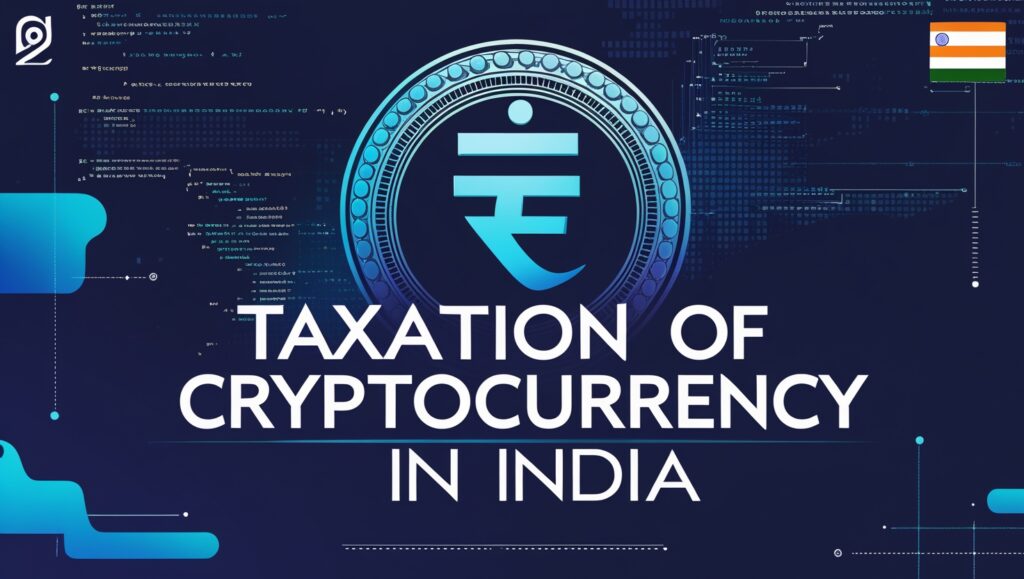
Whenever there is a growing interest in witnessing a particular change in the regulatory domain of a country, it is backed by valid opinions and a number of unresolved questions. Is Cryptocurrency Legal in India? is a recurring question in the minds of the crypto traders in this aspect. It is because the Indian Regulatory System challenges its own limits almost every other financial year to conduct deep knowledge-based thinking, as to whether the allowance of Cryptocurrency at the market front will give them a boost or will shake down the structure’s integrity.
Take a look at the various aspects of Legality and Illegality surrounding cryptocurrency in the Indian Financial Market.
Quick Glance at the Legality of Cryptocurrency
| 🇮🇳 Cryptocurrency Legal Status & Taxation in India – 2025 Overview | |||
| 📊 Legal Activities & Status | |||
| Activity | Legal Status | Taxation | Key Details |
|---|---|---|---|
| Trading & Investing | ✅ LEGAL | 30% on profits + 1% TDS |
Supreme Court lifted RBI ban in 2020. Can buy/sell on exchanges.
No loss offset allowed between different crypto assets
|
| Holding Cryptocurrency | ✅ LEGAL | No tax on holding (Only on gains when sold) |
Legal to own in wallets. Not recognized as legal tender.
Transfers between own wallets are not taxable events
|
| Using as Currency | ❌ NOT LEGAL TENDER | N/A |
Cannot officially pay for goods/services. Only INR is legal tender.
Private arrangements possible but no legal protection
|
| Cryptocurrency Mining | ✅ LEGAL | 30% on mining income |
No specific prohibition. High electricity costs make it challenging.
Mining rewards treated as taxable income
|
| 💰 Detailed Tax Structure | |||
| Profit Tax Rate | FLAT RATE | 30% |
Similar to lottery/gambling tax. No holding period benefit.
Same rate whether held 5 days or 5 years
|
| Transaction Deduction | TDS APPLICABLE | 1% TDS |
Threshold: ₹50,000/year (₹10,000 for lower brackets)
Applied regardless of profit/loss – helps government track transactions
|
| Loss Set-off | ❌ NOT ALLOWED | No deductions permitted |
Cannot offset crypto losses against other crypto gains
Bitcoin loss cannot reduce Ethereum profit tax
|
| 🏢 Popular Legal Trading Platforms | |||
|
🔹 WazirX – Largest Indian exchange, beginner-friendly interface
🔹 CoinSwitch Kuber – Mobile-first app with curated coin selection
🔹 CoinDCX – Advanced trading options, educational initiatives
🔹 ZebPay – Oldest player (2014), secure wallet features
🔹 Unocoin – Early Indian exchange, gift voucher features
Compliance Required: All platforms mandate KYC (PAN, Aadhaar) under PMLA 2023. Avoid anonymous trading platforms.
|
|||
| ⚖️ Regulatory Status & Future Outlook | |||
| Current Legal Framework | GREY AREA | Regulated via taxation |
No comprehensive crypto law yet. Regulated through existing laws (Tax, PMLA, RBI guidelines)
Cryptocurrency Bill 2021 still pending in Parliament
|
| Government Stance | CAUTIOUS ACCEPTANCE | Heavy taxation strategy |
“Tax but not legitimize” approach. No intrinsic value recognition.
G20 presidency used to call for global crypto regulation consensus
|
| Investor Protection | LIMITED | Self-responsibility |
No SEBI oversight yet. Exchanges under PMLA since 2023.
Use reputable platforms, enable 2FA, consider hardware wallets for large holdings
|
| 📋 Quick Compliance Checklist | |||
|
✅ Legal Requirements:
• Use KYC-compliant Indian exchanges • Report all crypto income in ITR • Pay 30% tax on gains • Maintain transaction records • Account for 1% TDS in tax planning ⚠️ Restrictions: • Cannot use crypto for payments • No loss offset between different crypto assets • No deductions allowed on crypto gains • Must trade through registered platforms |
|||
Current Legal Status: Trading, Holding, and Using Crypto in India
Trading & Holding: In 2025, owning and trading cryptocurrencies like Bitcoin or Ethereum is legal in India – there’s no law that prohibits individuals from buying, selling, or holding them. After a few roller-coaster years, this clarity emerged when the Supreme Court of India struck down the Reserve Bank of India (RBI)’s 2018 banking ban in March 2020, effectively restoring the ability for exchanges and investors to operate. Today, you can legally buy crypto on an exchange, hold it in your wallet, and sell or trade it as an asset. However, it’s important to note that crypto is not legal tender – you can’t walk into a shop and pay with Bitcoin (or even ask is bitcoin legal in India), at least not with any official recognition. The government does not recognize cryptocurrencies as currency, so they cannot be used for everyday purchases in place of the rupee. In short, one can trade and hold crypto assets, but they remain investment assets, not money.
Buying/Selling Crypto Assets
Purchasing cryptocurrencies (whether through rupees on an exchange or peer-to-peer) and selling them is permitted. There are no specific restrictions on these transactions as long as they adhere to existing laws (like foreign exchange rules and now tax laws). After the Supreme Court’s decision, crypto exchanges in India have been thriving. The industry operates in a regulatory grey area – crypto isn’t banned or fully regulated, so authorities like RBI, SEBI, and the Finance Ministry keep an eye on things without a dedicated crypto law. This ambiguity means while you won’t be arrested for trading Bitcoin, you should remain cautious and stay updated on new rules. Future legislation (such as a long-discussed but not-yet-enacted crypto bill) could change the game, so the landscape could shift with short notice. For now, the government’s approach has been to tax crypto rather than ban it, signaling a willingness to tolerate trading under certain conditions. You can revisit your thoughts once again about: is crypto trading legal in India at this point.

Using Crypto as Currency
A common question is whether one can use crypto to buy products or services in India. The answer: practically speaking, no. Cryptocurrencies are not recognized as legal tender in India. That means merchants and businesses are not officially allowed to accept crypto as payment for goods and services. A few savvy businesses might experiment with accepting crypto, but there’s no legal protection or framework for such transactions. If someone does accept Bitcoin for a sale, it’s a private arrangement, not a legally sanctioned payment method. The Indian government has consistently maintained that only the Indian rupee is legal tender, and even as it explores a digital rupee (Central Bank Digital Currency), it has ruled out giving crypto the status of currency. So, while holding and trading crypto is legal, spending it directly in India remains off the table.
Crypto Mining
What about mining Bitcoin or other coins – is that allowed? Yes, crypto mining is legal in India. There are currently no laws that specifically prohibit cryptocurrency mining. Enthusiasts can set up mining rigs and participate in the network. That said, mining isn’t very widespread in India, not because of legality, but due to practical challenges: high electricity costs, stringent import rules for high-end computer equipment, and a lack of clear policy often make large-scale mining unfeasible. Miners also face the same uncertainty as other crypto activities – since the sector is unregulated, there’s always a sliver of worry that new rules could emerge. Moreover, any income from mining (for example, earning new coins as a reward) is treated as taxable income by the tax authorities, falling under the same 30% tax rule (more on that below). Environmental concerns have been raised too, but those haven’t translated into specific Indian laws yet. In summary, mining won’t land you in jail, but it might not be profitable or easy either.
The table below sums up the legality of various crypto-related activities in India:
| Activity | Legal Status | Notes |
| Trading / Investing in Crypto | Legal (Allowed) | Permitted to buy, sell, and trade as assets; subject to taxation (30% on profits) |
| Holding Cryptocurrency | Legal (Allowed) | Permitted to own and hold in wallets; not considered legal tender or official currency |
| Using Crypto for Purchases | Not legal tender (Not officially allowed) | Not recognized as currency, so cannot pay for goods/services in crypto |
| Crypto Mining | Legal (Allowed) | No specific ban on mining; high electricity costs and taxes on mining income apply |
| Income from Crypto (Profits) | Taxable (30% tax on gains) | Profits classified as taxable virtual digital asset income (plus 1% TDS on certain transactions) |
India’s stance can feel contradictory at times. On one hand, authorities have not banned crypto outright; on the other hand, they haven’t actively regulated it beyond taxing profits and enforcing anti-money-laundering (AML) norms. Cryptocurrencies remain unregulated in the sense that there’s no comprehensive law defining what they are – they are not officially currency, securities, or commodities as of yet. This grey area means legality can be interpreted as “allowed by omission.” As an investor myself, I find this situation workable but a bit unnerving – one eye is always on any new government announcements.
Taxation of Cryptocurrency in India
One clear area where the government has made up its mind is taxation. If you’re trading or investing in crypto in India, be prepared to share a chunk of your profits with the taxman. In February 2022, the Finance Minister, Mrs. Nirmala Sitharaman, announced a tax framework for crypto that took effect from FY 2022-23. This was a landmark moment: for the first time India officially defined “virtual digital assets” (VDAs) and laid out tax rules for them. Does that mean crypto became legal overnight? Not exactly – the government was careful to say that taxation doesn’t equate to full legalization. In fact, Sitharaman clarified that just because they are taxing crypto doesn’t mean they regard it as having intrinsic value or being currency; it’s simply that “certain operations are taxable… and that is why we have taxed”. Still, the move gave crypto a de-facto legitimacy in the eyes of many, since something illegal would hardly be openly taxed.

Here are the key points of India’s crypto taxation regime:
- 30% Tax on Profits: Any income from the transfer of cryptocurrencies (VDAs) is taxed at a flat 30% rate. This is similar to the tax rate on lottery winnings or gambling – indicating that the government views crypto profits as windfall gains rather than normal investment income. Notably, this 30% applies to each transaction’s profit without any slabs or distinctions. Whether you held the asset for five years or five days, the rate is the same. Importantly, India does not allow deductions or loss set-offs for crypto gains. If you lose money on one coin and make money on another, you still pay 30% on the gains without netting the loss. (For example, a loss on Ethereum cannot offset a profit on Bitcoin.)
- 1% TDS on Transactions: In addition to the 30% tax, India introduced a 1% TDS (Tax Deducted at Source) on all crypto transactions above a certain threshold (₹50,000 per year for most individuals, and ₹10,000 for certain lower brackets). This means whenever you sell or trade crypto, 1% of the transaction value is taken as an advance tax and reported to the government. This TDS applies regardless of profit or loss. It was implemented to help the government track crypto trading activity (every transaction leaves a trail via the TDS). While it helps build a paper trail of who is buying/selling, it has also affected liquidity on exchanges – frequent traders find 1% being cut from every trade, which adds up. For casual investors, TDS is mostly an administrative nuisance (you can later claim it against your total tax liability).
- No Tax on Holding or Transfer between wallets: Simply holding crypto or transferring crypto between your own wallets isn’t a taxable event. Tax triggers when there is a “transfer” that results in gains, typically selling crypto for INR or exchanging one crypto for another. Also, if you receive crypto as a gift or reward (airdrops, etc.), those may be taxed as income as well, and subsequent sales taxed at 30%. Mining rewards, too, would be considered income and then any sale of mined coins taxed.
- Compliance and Reporting: All these transactions need to be reported in your Income Tax Return. The government has even added separate sections for “income from VDAs.” If one fails to report or pay the due tax, the authorities have signaled strict action (there were even proposals to levy penalties or interest for non-payment). As a law-abiding crypto holder, I make it a point to maintain records of my trades. It’s a new area for tax officials and taxpayers alike, so we’re all learning the ropes of filing crypto taxes properly.
This taxation structure was updated in Budget 2022 and has remained in force through 2023 and 2024. In Budget 2023 and 2024 there were murmurs from the crypto industry asking for relief (for instance, reducing the TDS from 1% to something like 0.1% to improve market liquidity), but no such relief came. As of the latest Budget 2025, the crypto tax rates are unchanged at 30%. The government did introduce or consider some reporting requirements – for example, a proposal to mandate crypto transaction details in annual tax forms – but the core taxes remain the same.
To put it simply, trading crypto in India is legal but expensive on the tax front. Profits are heavily taxed, which has somewhat dampened the enthusiasm of high-frequency traders and day traders. Long-term believers, however, seem to have made peace with the taxes as the price of legitimacy. The high taxes also serve as a bit of a warning from the government: we’re watching this sector closely. In fact, the official stance appears to be that India wants to discourage reckless speculation without banning the technology outright.
How to Invest or Trade in Crypto Legally in India
If you’re a beginner in India looking to dip your toes into crypto, here’s some good news: despite the confusing signals, it is possible to invest in crypto quite easily and lawfully. The process is much like investing in stocks via a broker, with a few extra precautions:
- Must require PAN & Aadhaar verification
- Check for PMLA compliance
- Upload PAN card and Aadhaar
- Provide bank account details
- Complete selfie verification
- Use same bank account as KYC
- Banks cannot deny crypto transactions
- UPI payments available on most platforms
- Can buy fractional amounts
- 1% TDS auto-deducted on sales
- Easy conversion back to INR
- Enable two-factor authentication
- Consider hardware wallet for large holdings
- You’re responsible for security
- 30% tax on all gains
- No loss offset allowed
- Report in ITR filing
- Keep TDS certificates
- Choose a Reputable Crypto Exchange/App: Pick a platform that is well-known and reliable in India. Several Indian exchanges have gained millions of users and operate within the tacit regulatory guidelines (following RBI’s norms and implementing KYC/AML checks). According to recent industry reports, top platforms in India include WazirX, CoinSwitch Kuber, CoinDCX, ZebPay, and Unocoin, among others. These platforms have mobile apps and websites that make buying crypto as easy as ordering a cab. Always ensure the exchange you choose adheres to KYC (Know Your Customer) norms – legitimate Indian exchanges will require you to verify your identity with documents like PAN card and Aadhaar. This is a good thing: it means the platform is trying to stay compliant with Indian regulations under the Prevention of Money Laundering Act.
- Complete KYC and Registration: Once you’ve chosen an app, register with your email/phone and complete the KYC process. You’ll typically upload ID documents and maybe a selfie, and provide bank details. This step is legally required by exchanges now. In fact, in 2023 the government brought crypto exchanges under anti-money laundering laws, so KYC is mandatory everywhere. After verification, you’ll have an account/wallet on the platform in your name.
- Deposit Indian Rupees (INR): To buy crypto, you need to deposit INR into the exchange – this can usually be done via bank transfer (IMPS/NEFT/RTGS) or even UPI payments. Exchanges partner with payment gateways or specific banks to allow smooth deposits and withdrawals. Ensure that you deposit from a bank account in your own name (matching your KYC) to avoid any issues. The good news is that using these apps and moving money through banks is legal – since the RBI ban was overturned, banks can’t deny service for crypto transactions just because they’re crypto-related. (Some banks were hesitant initially, but most have come around after RBI’s 2021 clarification memo.)
- Buy Crypto Assets: With INR in your exchange wallet, you can place orders to buy Bitcoin, Ethereum or any other cryptocurrency listed. For beginners, the apps often have a simple interface – you can specify ₹1000 to buy Bitcoin and you’ll get a fraction of BTC at the current rate, for instance. Trading is straightforward, and you can also sell your crypto back to INR anytime. Each trade or sale on these platforms will automatically handle the 1% TDS – for example, if you sell ₹50,000 worth of Bitcoin, the exchange will deduct ₹500 as TDS and deposit it to the government (you’ll see this in your transaction report).
- Secure Storage: After purchasing crypto, you can leave it in the exchange’s wallet (which is simplest, but has some risk if the exchange faces issues) or move it to a personal crypto wallet for which you control the private keys. Legally, both are fine. Many newcomers simply trust the app to hold their crypto, which is okay if the amounts are small. For larger holdings, one might consider a hardware wallet or other secure wallet. Always enable two-factor authentication and other security features on your apps – this space, being unregulated, also means you are largely responsible for your own security.
- Follow Tax Rules: Keep records of your transactions. At the end of the fiscal year, calculate your total crypto income (the exchanges often provide a statement). Ensure you report and pay the 30% tax on any gains when filing your Income Tax Return. The exchanges will also provide TDS certificates or Form 26AS entries for the 1% TDS you’ve paid, which you can claim so that you don’t pay double. It might sound daunting, but for most small investors it’s manageable – e.g., if you invested ₹10,000 and later sold for ₹15,000, your profit is ₹5,000, and tax would be ₹1,500 (30%). The platform would have already withheld some of it via TDS. It’s wise to consult a tax advisor if you’re unsure, but don’t be tempted to skip reporting in hopes that crypto is invisible – the TDS mechanism pretty much guarantees the government knows you traded.
- Stay Updated & Cautious: Laws and regulations can evolve. Join crypto communities or follow the news so you aren’t caught off guard by any policy changes. Also, invest carefully – crypto markets are volatile. As one industry CEO pointed out, even though trading is legal, the lack of full regulation means investors must exercise caution to keep their funds safe. Use reputable platforms (avoid shady “too good to be true” schemes), be mindful of scams, and don’t invest more than you can afford to lose.
Popular Crypto Trading Platforms in India
To give you a quick reference, here’s a list of some of the popular crypto exchanges/apps legally used in India as of 2025:
- WazirX: One of India’s largest crypto exchanges, known for its easy interface and wide coin selection. It gained prominence after the Supreme Court verdict and is frequently used by beginners and veteran traders alike.
- CoinSwitch Kuber: A user-friendly mobile app that became popular through its ad campaigns. CoinSwitch allows quick buying/selling of a curated list of cryptos and is often recommended for those just starting out.
- CoinDCX: A well-established Indian exchange with a robust platform. It offers a range of services from simple buying/selling to advanced trading options. CoinDCX has also launched educational initiatives to spread crypto awareness.
- ZebPay: One of India’s oldest crypto companies (founded in 2014), ZebPay relaunched in India after the RBI ban was lifted. It’s known for its secure wallet and simplicity, and it even offers features like a crypto saving plan.
- Unocoin: Another early entrant in the Indian crypto scene, Unocoin provides trading services and even supports features like buying gift vouchers with Bitcoin. It requires full KYC and has been compliant with Indian laws over the years.
(All the above platforms operate legally in India and follow KYC norms. There are also international platforms (like Binance) which many Indians use via peer-to-peer channels, but sticking to Indian-registered platforms can make things easier from a regulatory and tax perspective.)
Each of these platforms has its pros and cons (fees, number of coins listed, usability), but crucially, they have managed to continue operations within India’s legal framework. As a rule of thumb, avoid any exchange or app that claims you can trade anonymously or without KYC – not only is that a red flag for scams, it may also run afoul of Indian law. Always do a bit of research or ask experienced folks which platform they trust. The crypto community in India is quite active and usually quick to flag problematic services.
I remember the buzz in early 2020 when India’s Supreme Court lifted the effective ban on cryptocurrencies. Friends and colleagues were asking me, somewhat breathlessly, “So does this mean crypto is finally legal here?” The question isn’t as simple as a yes or no. In India, cryptocurrency exists in a kind of legal limbo – it’s allowed to trade and hold these digital assets, but they aren’t official money. Let’s break down what that means in practical terms, especially for anyone in India curious about trading or investing in crypto assets.
The Evolving Regulatory Stance and Future Outlook
It’s 2025, and if there’s anything I have learned watching the crypto story unfold in India, it’s that the regulatory stance is constantly evolving even though news such as the crypto ban India and crypto legal issues keep surfacing. Just a few years ago, there were fears of an outright ban: a draft law in 2019 even proposed criminalizing possession of cryptocurrencies. Thankfully, those harsh measures never became reality. Instead, the government pivoted to a strategy of “recognize and regulate indirectly” – by taxing and bringing crypto transactions under the umbrella of existing laws (like tax law and anti-money-laundering law), they’ve implicitly allowed crypto to exist without formally blessing it.

Government’s View
The Indian government and RBI have always been cautious, bordering on skeptical, about crypto. They worry about risks to financial stability, investor protection, and illicit activities. As the Finance Minister’s comments indicate, the official line is that crypto is not recognized as having intrinsic value or legal tender status. Yet, India has not sought a China-style blanket ban. In fact, recent statements suggest that India is not seeking an outright ban, but rather trying to curb the bad actors in the space while allowing innovation in a controlled manner. One tangible step in this direction was bringing crypto exchanges under the Prevention of Money Laundering Act (PMLA) in 2023, which forces exchanges to report suspicious activities and conduct thorough KYC. This integration with the traditional financial oversight shows a willingness to integrate crypto into the existing system rather than shut it out.
Pending Legislation
What about that elusive comprehensive crypto law? There was the Cryptocurrency and Regulation of Official Digital Currency Bill, 2021 which got a lot of media attention. It proposed banning “private cryptocurrencies” (an ambiguous term) and paving the way for India’s Central Bank Digital Currency (which indeed launched pilot trials as the Digital Rupee later). However, that bill was never introduced in Parliament. It remains in limbo. Rumors abound that a new version of the bill could be introduced once there is international consensus. India used its G-20 presidency in 2023 to call for a unified global approach to crypto regulation. The subtext is that India might be hesitant to act alone in heavily regulating or banning crypto, preferring to move in step with other major economies. So for now, instead of a single “Crypto law,” we have crypto being regulated through existing laws (tax, PMLA, RBI’s forex rules, etc.) and policy circulars.
Is it Safe to Invest Now?
From a legal standpoint, investing in crypto in India is safe in the sense that it’s lawful to do so and you won’t be penalized just for owning crypto. Millions of Indians are holding crypto assets today without legal issues. The introduction of taxation and KYC norms has even given a sheen of legitimacy – it’s unlikely the government would suddenly declare all crypto holdings illegal because that would jeopardize the hefty taxes they are collecting. However, one must remember that crypto investments carry financial risk. The prices swing wildly, and with no regulatory body like SEBI overseeing crypto exchanges yet, there’s limited investor protection. If an exchange were to mishandle funds or get hacked, there’s no government backstop. This is why industry experts often emphasize personal responsibility. As WazirX’s CEO, Nischal Shetty, noted, the lack of regulation puts the onus on investors to be careful and secure their investments. In practice, this means using reputable exchanges, enabling all security features, and perhaps using personal wallets for large holdings. It also means being mentally prepared for volatility – crypto is infamous for steep climbs and free-falls.
Could the Laws Change Soon?
This is the million-rupee question. The crypto community in India is optimistic that we’ll move toward clearer regulations rather than an outright ban. Given the global trend and the size of the Indian market, a ban seems less likely now than it did a few years ago. That said, regulatory flip-flops are not impossible. It’s wise to keep an ear out for policy announcements. If a new crypto bill comes to Parliament, its contents will be crucial – it could impose licensing for exchanges, define what a crypto asset is legally, and set the stage for how crypto will coexist with India’s financial system long-term. On the flip side, if global authorities (G20, IMF, etc.) decide on strict measures, India could implement those. In essence, the legal status could evolve, but any drastic move would presumably involve public debate and a transition period. Personally, I suspect we’ll see tighter regulations (for example, requirements for exchanges to register with a regulator, or even a CBDC framework coexisting with crypto) rather than a blanket ban. The government’s current approach – tax heavily and monitor – might continue until a global blueprint for crypto rules emerges.
Investor Tips in an Uncertain Environment
In an ever-changing scenario, the best an investor or crypto-enthusiast can do is stay informed and compliant. Pay your taxes on crypto gains diligently – this greatly reduces any legal risk. Keep an eye on RBI and Finance Ministry press releases. They occasionally issue warnings (RBI periodically reminds citizens that crypto is not legal tender and that they invest at their own risk). Be cautious of new schemes and tokens; many scammers prey on the lack of regulation to run Ponzi schemes under the guise of crypto. Stick with known assets and platforms, especially while the rules are hazy.
Conclusion
In conclusion, cryptocurrency in India occupies a legal grey zone – but one that’s increasingly illuminated by government attention. You can trade (which means crypto trading is legal in India), hold, even mine crypto legally for now, but you must follow the tax rules and be mindful of the regulatory undercurrents. Think of it this way: crypto is like a guest in India’s financial house – not yet given citizenship, but welcomed as long as it behaves. As an investor, I find this both exciting and nerve-wracking. The doors are open for innovation and profit, but one eye is always on the door, wondering if the host’s mood might change. For the time being, though, crypto is here to stay in India, evolving from a clandestine corner of the internet to a taxable, talked-about asset class. The government’s stance might continue to mellow from skepticism to cautious acceptance, especially if the industry itself stays transparent and secure. Only time will tell how the story finally unfolds, but right now, armed with the knowledge of legality and taxes, one can certainly explore the crypto world in India without feeling like an outlaw.
Frequently Asked Questions (FAQs)
1: Is cryptocurrency legal in India?
Yes, owning, trading, and holding cryptocurrencies like Bitcoin and Ethereum is legal in India. However, crypto is not recognized as legal tender, meaning you cannot use it to make official payments for goods or services.
2: Can I use cryptocurrency to buy products or services in India?
No, cryptocurrencies are not recognized as legal tender in India. While some merchants might accept crypto in private arrangements, such payments are not legally protected or officially recognized.
3: How is cryptocurrency taxed in India?
Profits from crypto trading are taxed at a flat 30% rate, with no loss offset allowed. Additionally, a 1% TDS is deducted on transactions above ₹50,000 per year (₹10,000 in some cases), regardless of profit or loss.
4: Is crypto mining allowed in India?
Yes, crypto mining is legal in India. There are no specific prohibitions, but high electricity costs and lack of regulatory clarity make large-scale mining challenging. Income from mining is also taxable.
5: Is it safe and legal to invest in crypto through Indian exchanges?
Yes, investing through KYC-compliant Indian exchanges like WazirX, CoinDCX, and CoinSwitch is both safe and legal. These platforms operate under existing financial and anti-money laundering laws, though investors should remain cautious due to the unregulated nature of the sector.
Our Review Methodology
We evaluate each post based on thorough research, credibility of sources, accuracy of information, and relevance to our readers. Our editorial team follows strict guidelines to ensure all content meets high standards of quality.
Disclaimer
The content in this article is provided for informational purposes only and does not constitute financial, investment, or professional advice. Always do your own research before making any decisions.


